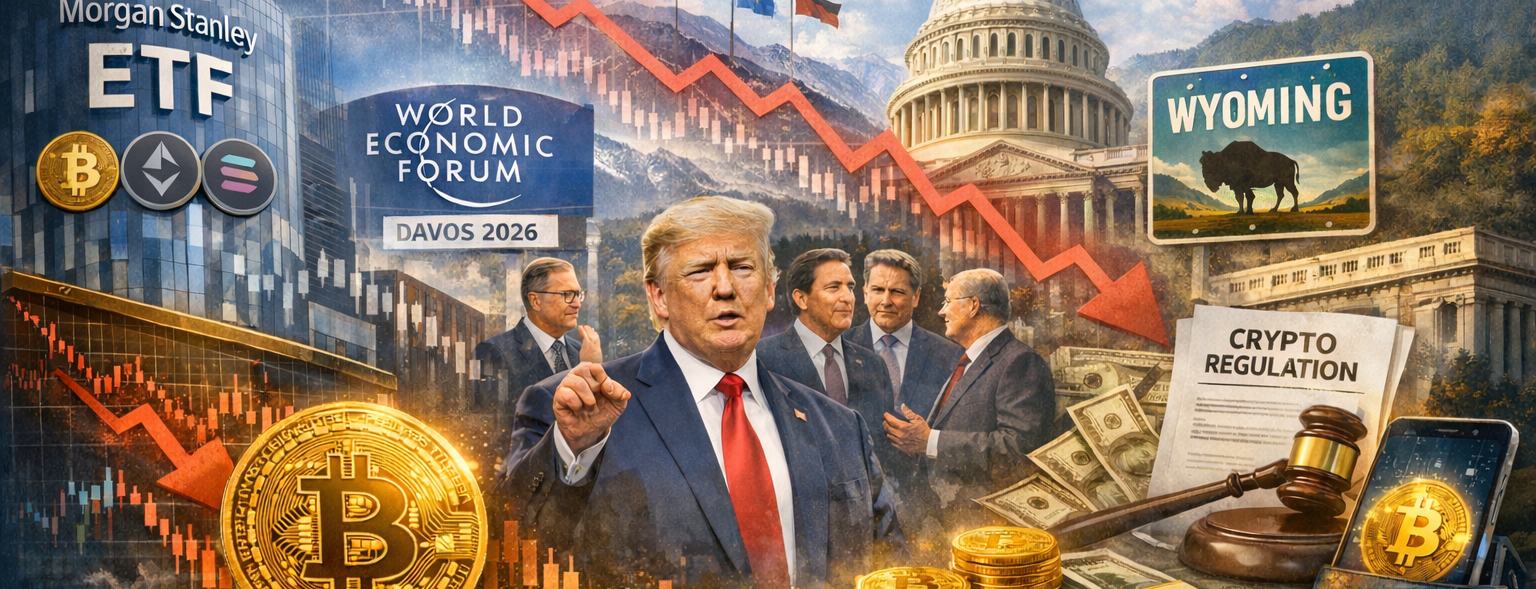
Bitcoin is the world's largest and most famous cryptocurrency. Thanks to its popularity, it has aroused significantly different opinions throughout its history, even among those who are not familiar with it more deeply. There are several different myths floating around Bitcoin that can distort the truth and prevent understanding of Bitcoin's true strengths. In this blog, we'll break down five well-known Bitcoin myths and see if they're actually true.
Bitcoin has no real value
"Bitcoin is just numbers on a screen and has no real value." Critics of Bitcoin often point out that it is only an asset in digital form. This is based on the notion that material things like gold have more "real" value. In addition, for many people, Bitcoin technology and how it works can be complex and difficult to understand. This can create uncertainty about its true value.
New technologies, especially those that threaten traditional systems, are often met with doubt and skepticism. Bitcoin contains several different properties that create its real value. These features include:
Utility and Purpose: Bitcoin acts as a decentralized digital currency and store of value. It allows users to transfer value globally without intermediaries. Many people use Bitcoin to make digital payments and as an investment tool.
Limited Supply: The supply of Bitcoin is limited and predetermined (21 million bitcoins). This limited supply and the gradual reduction (halving) of mining over time can increase its value in the long term.
Reliability and security: Over the years, Bitcoin has proven that its backbone, the decentralized blockchain, is capable of operating safely and reliably in all situations. It provides openness and transparency to transactions, which in turn increases Bitcoin's trust.
Answer against inflation: According to several different experts, Bitcoin is an excellent hedge against inflation. Bitcoin's strength is definitely its unchanging monetary policy. As a result of Bitcoin halving every four years, Bitcoin inflation will be almost non-existent in the future. One of the most important functions of money is to act as a store of value. It is clear that Bitcoin is able to perform this task better than inflation-sensitive traditional currencies.
Bitcoin's open-to-everyone decentralized network, halving every four years and a predetermined maximum amount are features that have increased investors' interest in Bitcoin. These features create value for Bitcoin not only as an investment target valued by numerous investors, but also as a decentralized monetary system that positively affects the daily lives of hundreds of millions of people.
Bitcoin has a negative impact on the environment
"Bitcoin is destroying the Earth." This is a claim that has surfaced frequently in recent years, especially among critics of Bitcoin. This claim is mainly based on the fact that Bitcoin mining consumes large amounts of electricity. The complex calculation performed by computers used in mining requires significant computing power, which in turn consumes a lot of electricity. Currently, the electricity consumption of Bitcoin mining is in the same category as that of countries the size of Finland.
Although Bitcoin mining requires significant amounts of electricity, it also has potential from an environmental perspective. Today, most of the electricity used for Bitcoin mining is produced with environmentally sustainable energy sources. Bitcoin mining can serve as an example and pioneer in the development of sustainable energy sources. It can also provide a solution to the challenges of demand elasticity and help reduce emissions by using renewable energy. Bitcoin mining can also utilize, for example, methane that otherwise ends up being burned in the atmosphere. In addition, the heat generated as a byproduct of mining can be used to heat apartments and greenhouses. Since Bitcoin mining requires a lot of electricity, it could also encourage investments in the production of sustainable and renewable energy.
Bitcoin is not secure
"Bitcoin can be hacked and you lose all your money." Unfortunately, there is a lot of misinformation and misconceptions about the security of Bitcoin and the possibility of losing all your money due to a hack. The technical nature of Bitcoin and the complexity of blockchain technology can lead to a false perception that it may be vulnerable or susceptible to hacking. This is often because blockchains and cryptographic concepts can be difficult to understand without deep technical knowledge.
The Bitcoin network has never been hacked. Its open source code has been reviewed by countless security experts and computer scientists. Bitcoin's blockchain technology's cryptographic mechanisms and decentralized networks have demonstrated exceptional resilience against security issues. Blockchain is distributed around the world and its security is based on mathematical cryptography, making it highly unlikely to be vulnerable to attack.
The Bitcoin blockchain is protected by encryption methods and cryptography that make it extremely secure. The Bitcoin network is based on open source code and is therefore transparent, which allows for constant review and testing, contributing to its security. The technical nature of Bitcoin and the complexity of blockchain technology can lead to a false perception that it may be vulnerable or susceptible to hacking. This is often because blockchains and technical concepts can be difficult to understand without deep technical knowledge. The Bitcoin protocol and its blockchain have shown excellent resilience so far, as the Bitcoin network has not crashed or been hacked in over a decade.
Instead, the risk of losing money is usually related to people's own mistakes and carelessness. For example, stolen or weakly protected private keys can expose you to the loss of funds. In addition, scams, fraud and untrusted platforms can also put users' funds at risk. Many misconceptions about the security of Bitcoin stem from attacks on third-party companies and services that use bitcoin or offer bitcoin to their customers. This has nothing to do with the security of the Bitcoin network itself.
Investing in Bitcoin is a gamble
"Investing in Bitcoin is like buying a lottery ticket." The sentence in question has been well-known in recent years both in the traditional media and among Bitcoin skeptics. Gambling generally refers to an activity that is based purely on chance and is completely unpredictable. Investing in Bitcoin, on the other hand, is a considered decision based on market analysis, technology and an understanding of Bitcoin's potential. It is absolutely true that the value of Bitcoin has fluctuated wildly throughout its history, but does this make investing in Bitcoin gambling?
Bitcoin, which is almost 15 years old, is still a very young investment even today. High volatility can be considered a characteristic, especially in the case of young and growing markets. Bitcoin's long-term value and interest among investors has been on the rise throughout its history. This is significantly different from gambling, because in gambling you can be sure that the odds are practically always on the side of the house. Although there are naturally no guarantees of Bitcoin's future price development, its long-term price development has been extremely favorable from an investor's point of view.
When investing in Bitcoin, one of the most popular investment strategies is definitely DCA (Dollar-Cost Averaging). In practice, this means that the investor invests a fixed amount every week or month, regardless of what the market does. This strategy has historically resulted in the best outcome for most investors when investing in Bitcoin, regardless of volatility.
Whether Bitcoin has a place in your investment portfolio depends on your personal risk tolerance and investment horizon. It is absolutely true that while Bitcoin has seen strong gains over the past decade, it has also had significant down cycles. However, strong fluctuations in the exchange rate are typical for a young investment like Bitcoin, and they do not make investing in Bitcoin a gamble.
Bitcoin is a bubble
"Bitcoin is a bubble." This is a statement that even today is unfortunately often heard from people who are not familiar with the matter. In the investment world, a bubble usually refers to a situation where the value of an asset rises rapidly and artificially, exceeding the fundamentals of its true value. In a bubble, the price of an asset rises extraordinarily high and often above its true value, leading to general over-enthusiasm and even excessive optimism among investors about it.
A bubble burst means a sharp drop in prices and usually a crash after investors start selling their assets. This often results in a dramatic drop in price that can return the asset's price to or even below its true value.
Bitcoin is sometimes compared to one of the most famous and earliest bubbles in history: the Dutch "tulip mania" of the 17th century. In 1637, speculators raised the prices of some varieties of tulips 26 times. The bubble lasted six months before bursting, and tulip prices never recovered.
Bitcoin's approximately 15-year history has included several price cycles. Each cycle has contained both a strong rise in the exchange rate and also a fall. However, during its history, Bitcoin has recovered from every down market and its rate has so far reached a new price record in every up market. When it comes to new technology, strong up and down cycles can be considered completely normal. Many experts believe that as Bitcoin establishes its position as a viable investment, its price fluctuations will also decrease.
Summary
Bitcoin often arouses different opinions among people. However, over the years there have been many different claims about Bitcoin that are not necessarily true in reality. This text presented five well-known Bitcoin myths. However, there are actually considerably more of these. It is best to discover the truth behind the claims by getting familiar with the subject itself and finding out about the facts. It is at least certain that, as Bitcoin's popularity increases, the number of various false claims about Bitcoin will also possibly increase, in which case the importance of correct information will be emphasized.
Mikko Soon
Head of Private Banking
Last updated: 08.12.2023 13:00




